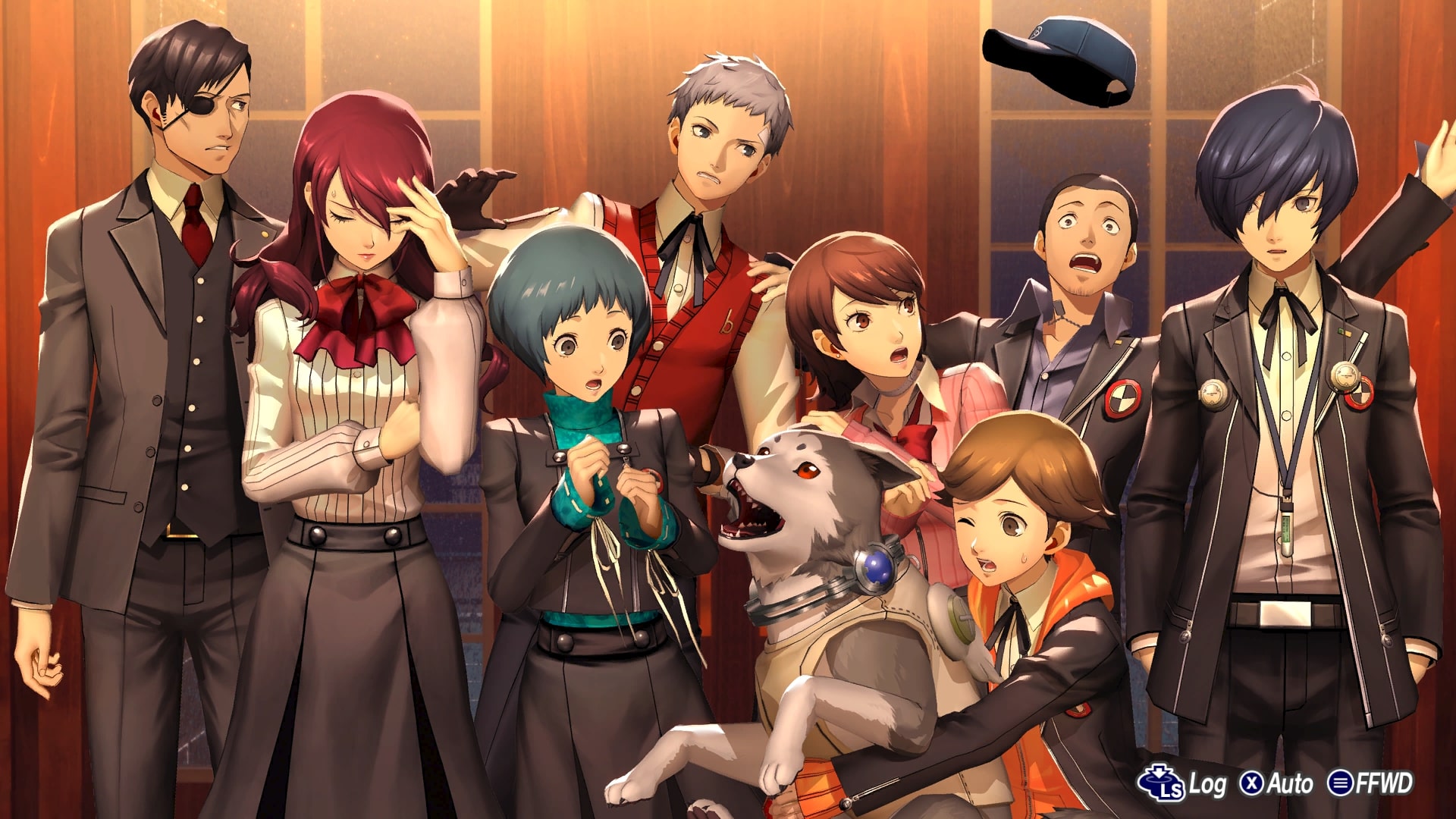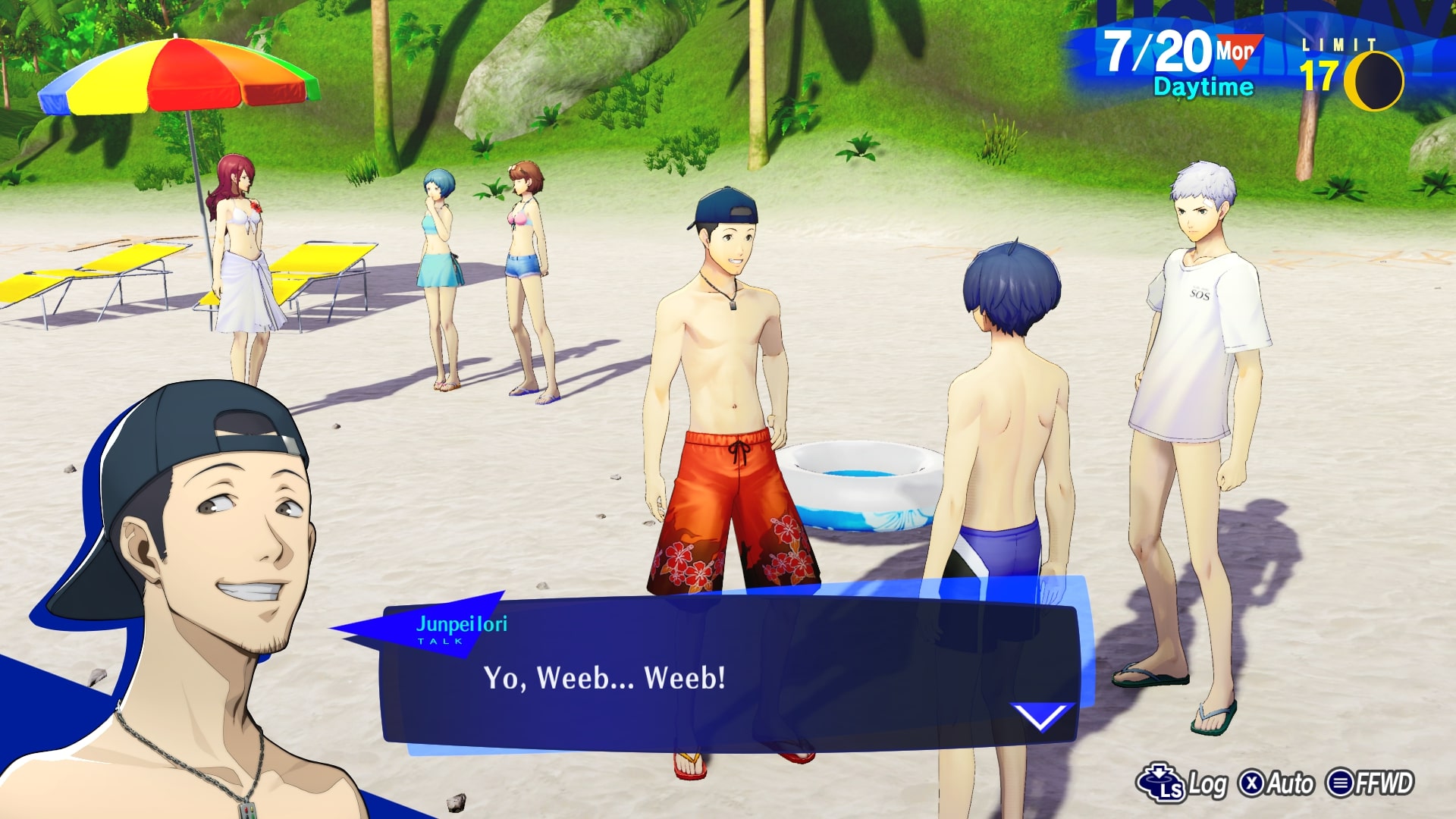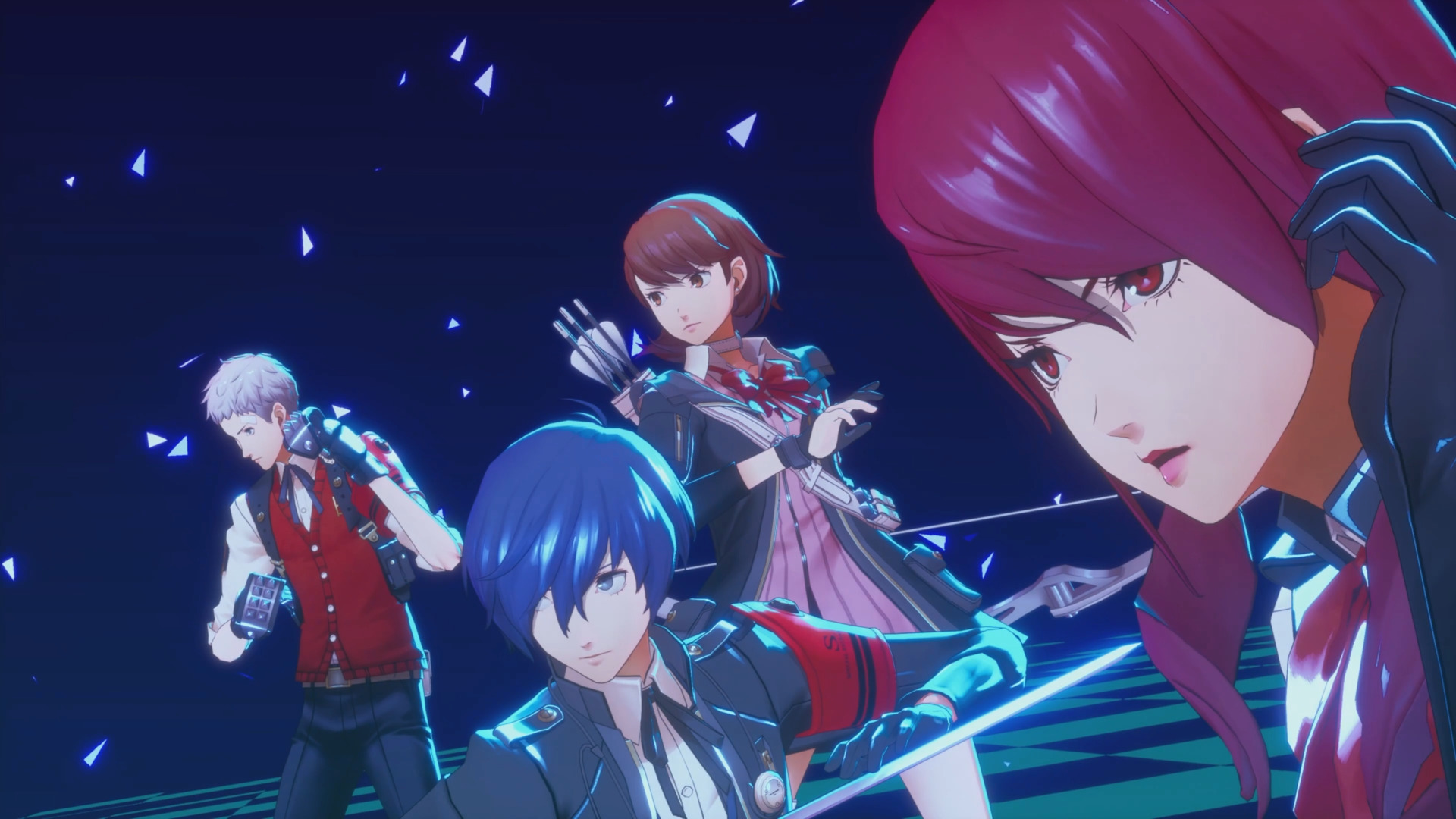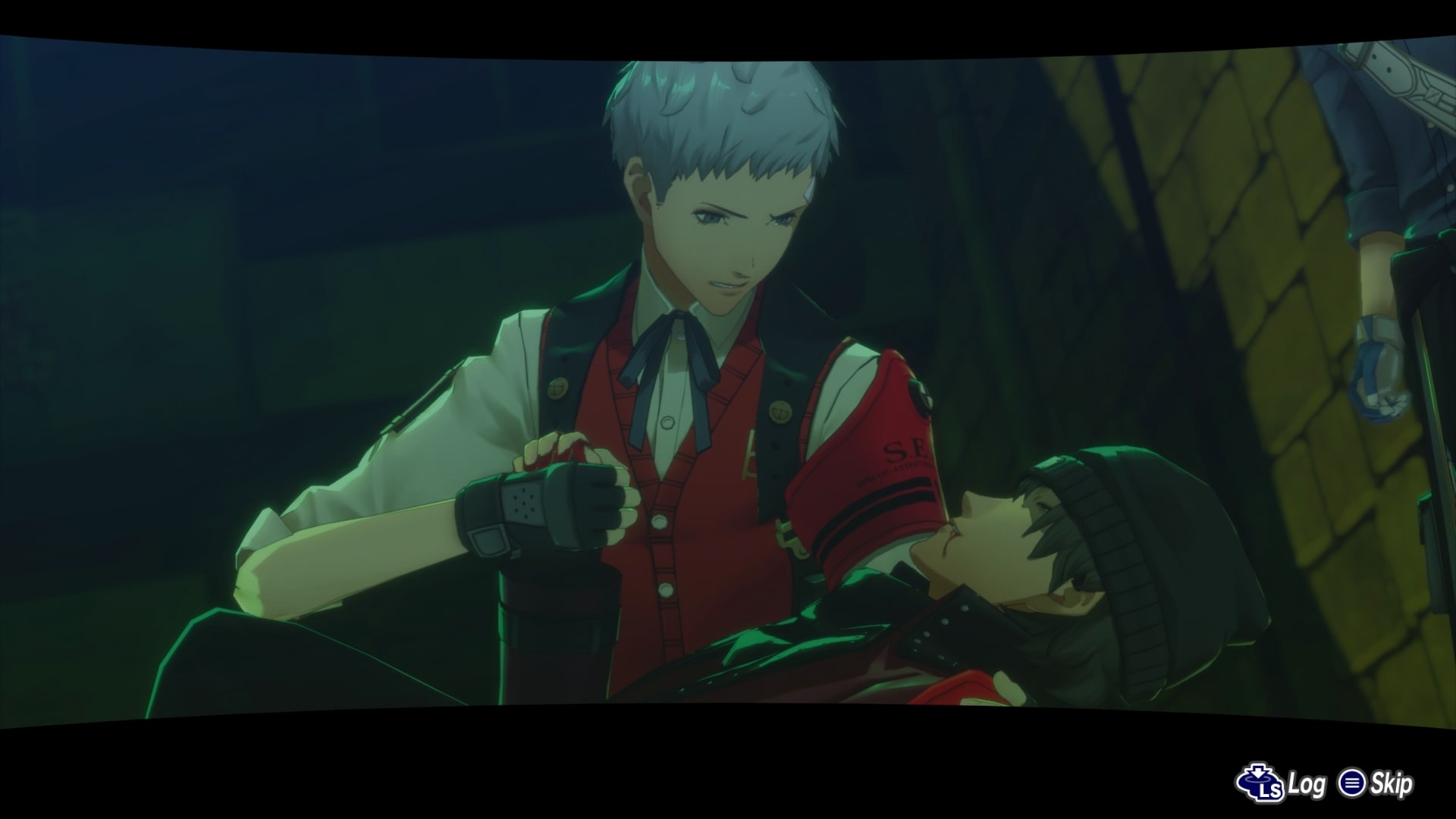
I have a confession to make about Persona 3 Reload. Roughly 10 hours into my first ever playthrough, I was all too quick to dismiss P3's storyline as a snoozefest, and yet here I sit before you, absolutely shattered by it. Being my first JRPG ever, the form and flow of P3R felt unnatural to me – especially the storytelling quirk of playing out each calendar day one after the other, split between school and extra-curricular dungeon crawling. I mistook a cleverly-hewn epic tale for a plodding, cyclical bore, and its characters as cringe-worthy stereotypes best left in 2007 along with studded belts and knee-high Converse.
I stand here before you to apologize for being unbelievably wrong. It might have taken me far longer than expected, but I think I finally understand what makes this game so legendary. All it took? The death of a character I had no idea I even cared about.
Warning: Spoilers for Persona 3 Reload ahead
Had me in the first half


Persona 3 Reload's new Link Episodes are just what the long-serving JRPG needed.
I still stand by the fact that Persona 3 Reload is not going to gel with everyone immediately. Something about it felt off-kilter and uncomfortable to me for a good long while, and it's hard to put my finger on exactly why that is.
One big reason is that everyone in this game is a caricature. The baffling existence of egregiously French exchange student Bebe is the perfect example, with the Temperance arcana social link sporting an accent as heavy-handed and off-putting as his aggressively outdated queer coding (he holds a little fan and loves to sew). Junpei's unrelenting creep factor also makes me instantly loathe him, perving on anything with female sex characteristics in a way that can only be described as foul. I get that these elements have been around since the original Persona 3, but even the biggest fans out there must agree that they don't exactly make the game approachable to newbies in 2024. All of this means that I had pretty much zero connection to any of the characters in Persona 3 Reload – until Shinjiro Aragaki died.
The events of October 4 rattle me whenever I think of them. Akihiko holding his best friend's hand while he dies in his arms. Koromaru, the team's adopted dog friend and squad member, howling at the ominous green moon overhead. And me, staring agape at the TV, wracked with sobs the entire time. I've never been one to hold back emotionally when something tugs at my heart but in this instance I was shaken not only by Shinji's death, but by how surprised I was that I even cared that much.
If you didn't catch my earlier thoughts on this game, I had been essentially fast-forwarding or rushing through most of the dialogue for the first 70 or so hours of Persona 3 Reload. The only characters I really enjoyed interacting with at first were Mitsuru and Akihiko. Voice actors Allegra Clark and Alejandro Saab bring such powerful performances to their respective roles, so their angsty backstories paired with the creepy mystery vibes of shadow-hunting in Tartarus largely formed the basis of why I enjoyed Persona 3 Reload at all. That's no slight on the rest of the cast – I just didn't find the characters that compelling in comparison. Shinji's death was a pivotal moment in that sense, because it marked when the rest of the characters finally became interesting.
Hama-rtia

Until the fateful night of October 4, none of the SEES gang had undergone much character development. Junpei was still a pervy weirdo, Yukari was just there to deliver some sass, and I still felt weird about having both a child and a dog fighting monsters alongside me. By this point, I'd accepted Persona 3 Reload for what I thought it was: dated and kitschy, a product of the halcyon days of the mid-00s where cringe stereotypes were the norm.
I didn't expect any of those factors to change too much, because I was still having fun playing the game. Upon Shinji's death, though, each character started awakening to their ultimate persona form – starting with my boy Akihiko. Following one of the most heart-wrenching moments I've ever witnessed in a video game, Akihiko accepts his friend's death and vows to do him proud. A new ability ignites inside him, and as it does, I actually get chills. Persona 3 Reload suddenly didn't feel like a melodramatic J-drama; it was about to touch on real, visceral themes of life, death, and acceptance. Consider me officially converted.
The events of October 4 rattle me whenever I think of them.
Persona 3 Reload's palpable shift in tone from October onward is where the story finally catches up to the action. Each member of SEES undergoes a drastic change within themselves over the weeks that follow, from Mitsuru's father's demise to Fuuka's growing confidence, that makes me appreciate Persona 3's grander plan for its seemingly cardboard-cutout characters. I even became sympathetic to Junpei, whose beloved Chihiro I was unable to save from rival gang Strega. Hey, this is my first time playing this game, remember, I didn't know it was possible to prevent it. I'm not even sure I would have appreciated Junpei's eventual victory over his own feelings of inadequacy had Chihiro lived. Not to propagate the manic pixie dream girl thing, but it's only through her death and the joining of their two personas that Junpei is able to get his act together. I'll even forgive him ogling at the girls on New Year's Day, because I guess the guy has earned a little joy.
Now firmly stuck into January on my Persona 3 Reload journey (because of course I didn't kill Ryoji), I'm fully invested. The initial hump of learning the ways of this particular JRPG was more than worth the time I spent chipping away at it, and I only wish I had been more patient before casting judgment so soon. I'll admit that I do know how it all ends – occupational hazard of this job, I suppose – but that doesn't bother me at all. True, I'm still a sucker for powering through a month's worth of Tartarus in one or two outings, but just like the members of SEES, I'm determined to look death in the eyes on January 31 and smile back.
I'll be checking out the list of best Persona games to play next after wrapping up in Gekkoukan High.







